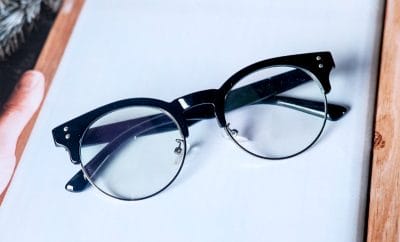We often take our eyesight for granted, that is, until something goes wrong or we notice a difference in our vision. Unfortunately, these days, there’s no shortage of misinformation and myths about eye health—making it harder than ever to tell the facts from fiction when it comes to staying healthy and spotting potential issues with your vision.
In this post, Gibran Khurshid will delve into common eye care misconceptions to help clear up the confusion surrounding your ocular well-being. From understanding UV rays and contact lenses to knowing what kind of glasses you should choose for outdoor activities—we’re breaking down exactly what you need to know to keep those peepers in check.
Don’t Believe Everything You Read: Analyzing Common Eye Care Myths
It’s easy to believe everything we read on the internet, but when it comes to eye care, it’s important to separate fact from fiction. Many common eye care myths can be harmful if followed blindly.
For example, one pervasive myth is that sitting too close to a television or computer screen can damage your eyesight. While sitting close to the screen may cause eye strain and fatigue, it won’t permanently damage your eyes. Another myth is that reading in dim light can damage your eyesight.
While reading in dim light may make your eyes feel tired, it won’t cause any permanent harm. By learning the truth behind these common eye care myths, we can make informed decisions about our eye health.
Who Needs Glasses: Exploring Communities With Low Rates Of Vision Impairment
It’s no secret that glasses have become a common part of daily life for many individuals. However, there are communities out there with lower rates of vision impairment. It’s fascinating to explore these places and learn about the factors that contribute to their eye health.
There are many variables at play, from lifestyle choices to genetic predispositions. With this knowledge, perhaps we can adapt our own habits and practices to improve our vision and overall well-being. It’s always inspiring to see how different communities navigate health challenges and find success in unique ways.
Dispelling The “20/20” Vision Myth
The phrase “20/20” has become synonymous with perfect vision, but the reality is much more complicated. 20/20 vision is just one aspect of visual acuity, which measures how clearly a person can see objects at a certain distance. Visual acuity can be affected by several factors, including age, underlying health conditions, and even the lighting in the room.
Additionally, some people may have excellent visual acuity but still struggle with other visual impairments, such as color blindness or depth perception issues. So, rather than focusing solely on the number 20/20, it’s important to consider the broader picture of visual health and seek regular eye exams to maintain optimal vision.
Examining Nutritional Benefits Of Protecting Your Eyesight
By examining the nutritional benefits of different foods, we can better understand how to keep our eyes healthy and prevent potential vision loss. Foods such as leafy greens, citrus fruits, salmon, and nuts all contain vitamins and nutrients that can benefit our eyes, including vitamins C and E, omega-3 fatty acids, and antioxidants. So, the next time you sit down for a meal, consider adding some of these foods to your plate to not only nourish your body but also protect your precious eyesight.
Looking Ahead: Managing Your Eye Health Through Regular Checkups And Treatments
Eyesight is one of the most essential senses in our lives, enabling us to see and experience the world in all its glory, says Gibran Khurshid MD. However, as we age, our eyesight can deteriorate, making it difficult to read, see clearly, or perform daily activities efficiently.
That’s why it’s essential to prioritize eye health by scheduling regular checkups and treatments with an eye specialist. Through regular comprehensive eye exams, your eye doctor can assess your vision, detect potential eye disorders, and provide early intervention to prevent further complications.
From diagnosing cataracts, glaucoma, or macular degeneration to prescribing corrective lenses or eye drops, early detection and treatment are key to managing your eye health and preserving your vision for years.
Taking Care of Your Eyes: Tips For Maintaining Healthy Eyesight
Your eyes are one of your most precious senses, and you must do your best to care for them. There are several ways you can keep your eyes healthy. First and foremost, it is essential to schedule regular eye exams with your optometrist.
They can check for any potential issues and ensure your prescription is current. Additionally, eating a healthy diet of fruits and vegetables can provide essential vitamins and antioxidants to support good eye health.
Avoiding smoking and remembering to wear sunglasses to protect against UV rays can help maintain healthy eyesight. It’s worth taking the time and effort to care for your eyes.
Final Thoughts
It’s never too late to begin caring for your eyes. Taking action now can protect your vision health for years to come.
If you haven’t had an eye exam in the past year or need glasses, make an appointment today with your optometrist. Advanced technology is available to detect and prevent vision loss even before you feel any symptoms.
Eating a balanced diet of vitamins and nutrients will help keep your eyes in good condition. Follow these tips and stay alert for potential problems to maintain healthy eyesight into the future.
